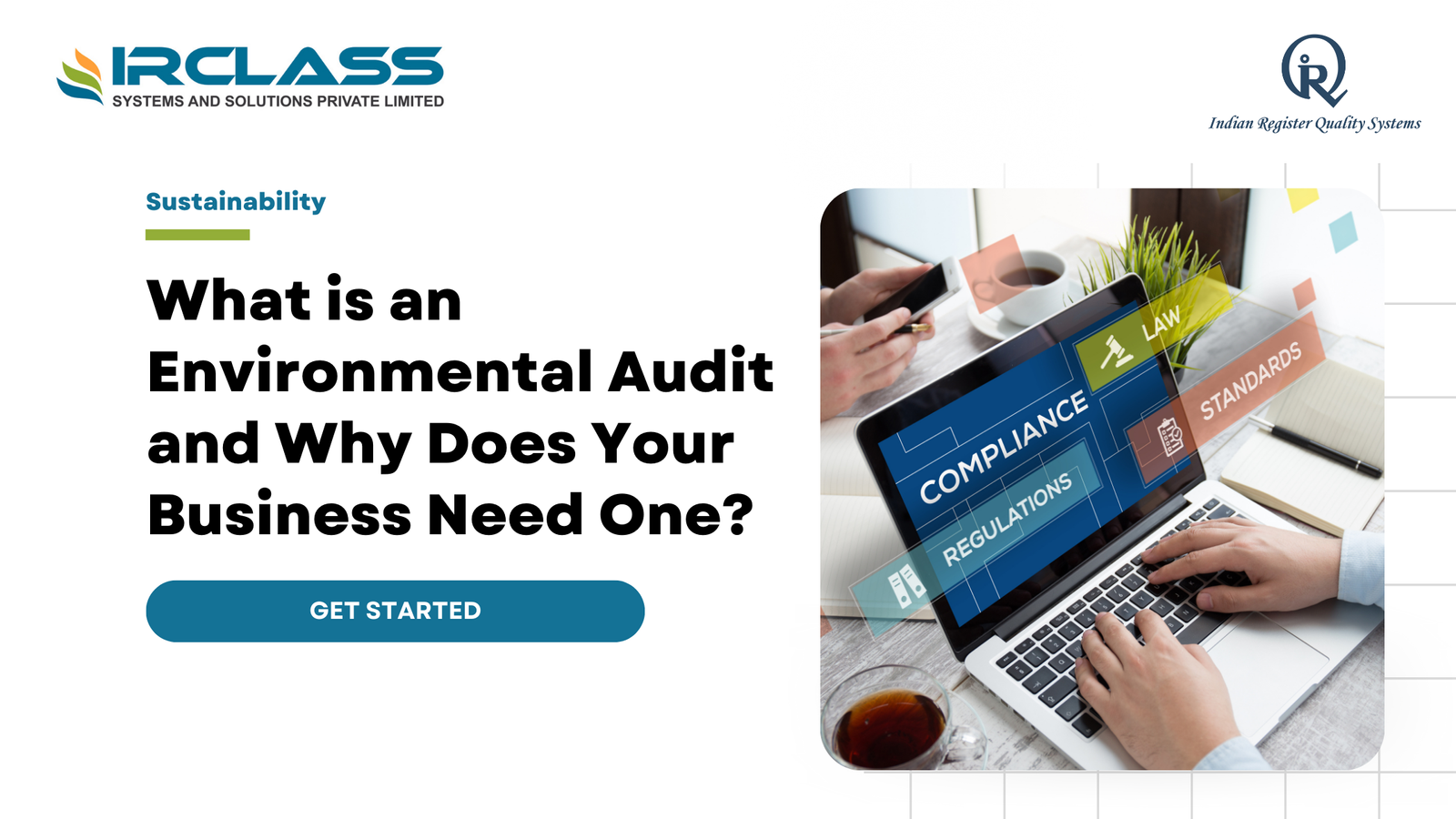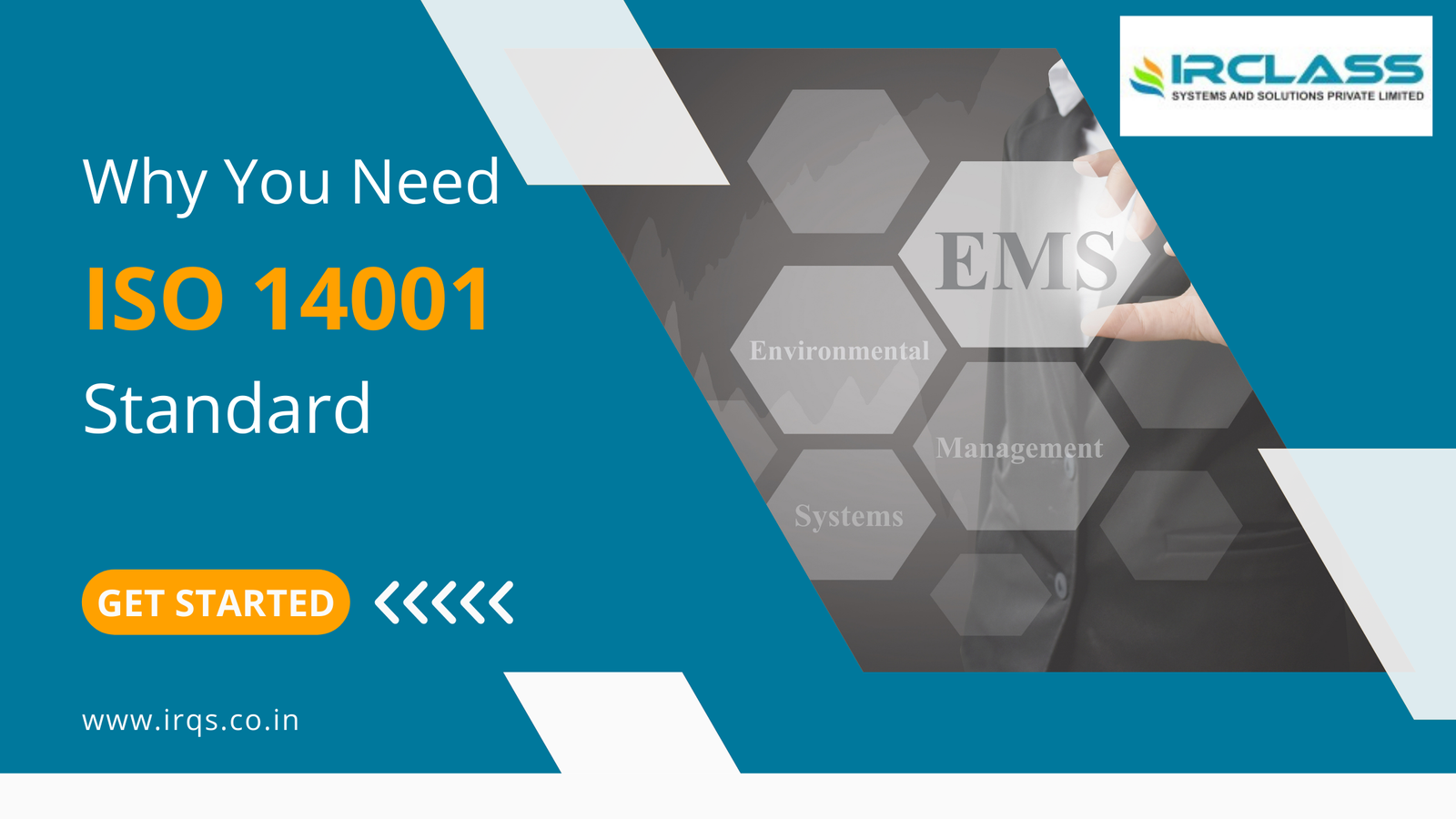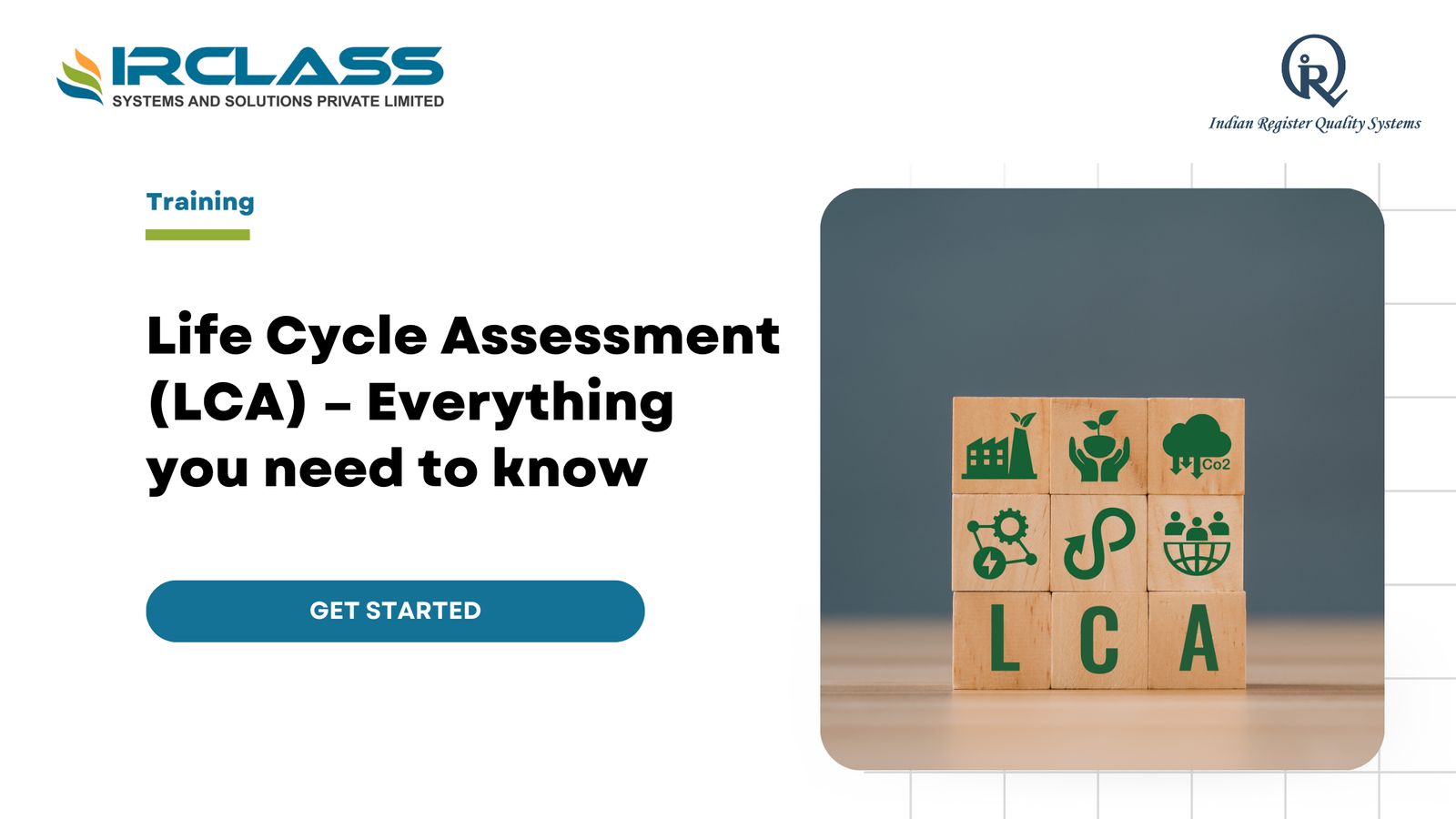Category: Environmental Audit

What is an Environmental Audit and Why Does Your Business Need One?
Since businesses are growing at a very fast pace, organizations are forced to be sustainable today. The world is slowly moving towards environmental conservation, and therefore organizations cannot just operate and meet the legal requirements but have to do more in preserving the environment. One of the most effective tools to do this is an environmental audit. What is an environmental audit and why should your business consider one? Let’s explore. Definition and Importance Environmental audit is a systematic, documented and objective assessment of the environmental performance of an organization. It is a measure of the level of compliance of an organization to environmental laws, organizational policies and standards and industry best practices. The primary purpose of environmental audit is to assist the management to understand the impact of the environment on its operations and where adjustments are required. That is, environmental audits are a health check of a company’s environmental management system (EMS). They help in the application of the environmental legislation and standards, evaluation of risks and opportunities for improving the environmental management. Customers, investors and regulatory bodies are today concerned with environmental performance and failure to monitor and improve on environmental performance puts a company at risk of facing legal consequences, loss of reputation and market share. However, organizations that are willing to embrace environmental responsibility are rewarded with competitive advantage because the stakeholders are becoming more sensitive with the organizations they want to deal with. Types of Environmental Audits Environmental audits can be classified according to their purpose and there are various categories of environmental audits. This will help you to know the kind of these and how to get the right audit for your organization. 1. Compliance Audits Compliance audit is an audit that is done to establish the level of compliance of an organization to the environmental laws, regulations and standards. It is about looking for non-compliance and making sure that the company complies with what is expected of it in the law. The regulatory authorities require compliance audits to check whether the businesses are operating within the stipulated environmental standards. 2. EMS Audits This audit type is an evaluation of the effectiveness of an organization’s environmental management system. It affirms that the EMS is fully operational and in line with standards like the ISO 14001. EMS audit is a formal assessment of the processes, policies and practices to identify areas that require change and improvement and to improve the environmental performance. 3. Performance Audits Performance audits are not just compliance and EMS but a whole lot more. This is centered on the efficiency of an organization in the utilization of the resources, energy and the quantity of waste. The purpose is to search for ways to minimize the negative effects on the environment and improve the efficiency of the processes. 4. Due Diligence Audits A due diligence audit is usually carried out in mergers, acquisitions or property transactions. It assesses the environmental losses and threats of an individual asset or an organization. This audit provides the buyers and investors with the necessary information on the environmental risks and the expenses that will be incurred in correcting the situation to enable them make the right decisions. 5. Waste Audits Specifically, waste audits are targeted at the organization’s waste disposal. They take into account the types and amounts of wastes generated, the way wastes are dealt with and how wastes can be reduced, utilized, recycled and disposed. 6. Energy Audits An energy audit is a numerical evaluation of an organization’s energy usage and efficiency. They understand where energy can be saved, and therefore, costs and carbon emissions can be minimized. Energy audits are most useful in organizations that are intending to switch their energy supply to renewable energy sources or improve energy efficiency. Benefits for Businesses Environmental audit is useful to all the industries. Here are some of the key benefits: 1. Ensures Legal Compliance Environmental audits are conducted by businesses for the main reason of complying with applicable environmental law and regulation. There are hefty fines, legal action and even suspension of operations if you fail to comply. Regular audits keep businesses in the loop with the changes in regulation and help them be compliant. 2. Reduces Environmental Risks Environmental risks such as pollution incidents or mishandling of hazardous waste can have a devastating effect on the environment and the organization. Audit can help to identify possible risks and corrective measures to control them. 3. It enhances Operational Efficiency Inefficiencies in resource use, energy use and waste management are usually found during environmental audits. These inefficiencies can be eliminated by businesses, saving costs, improving productivity and generally improving operational efficiency. 4. It helps increase reputation and brand value Consumers and investors are becoming more and more attracted to sustainability and more and more businesses are being sought after that show they care. Environmental audit is a way to demonstrate to your clients that you care about the environment and will help to enhance your brand image, attract environmentally aware customers and improve your relationship with your stakeholders. 5. It contributes to Sustainability Goals. Environmental audits are a roadmap for organizations with an ambitious sustainability goal, such as carbon neutrality or zero waste. They track progress, identify gaps and strategies to reach these objectives. 6. Boosts Employee Engagement Employees are more likely to be motivated and engaged when they are working for a company that values sustainability. Environmental audits can be a means to build a culture of environmental awareness and responsibility, and employees can be involved in sustainability initiatives. 7. It provides Competitive Advantage. In many industries, sustainability is no longer a choice, it’s a necessity. Other firms can be distinguished from firms that conduct environmental audits and follow a sustainable approach, which then become the industry leader. How IRQS Can Help The environmental audit is a very complex and time consuming exercise and it requires professional skills, experience and understanding of the legal and best practices. This is where IRQS (International Register

Why Your Business Needs ISO 14001 Standard Certification
Why Your Business Needs ISO 14001 Standard Certification It is all about helping companies to be more environmentally conscious. It’s sort of a manual which companies can use to be certain that they’re eco-friendly. Consider it an emblem that indicates the company’s commitment to safeguarding the environment. This is how it goes. It starts when a company decides to go more eco-friendly. They consider all activities they perform that could impact on the environment, such as producing waste or using energy. After that, they apply ISO 14001 rules to set an action plan. This helps reduce the impact they have on the environment. Being certified isn’t one time thing. Businesses must continue to work to improve their environmental plans and be examined by professionals to be sure they’re doing the right thing. If they’ve satisfied all specifications, they receive their ISO 14001 certificate. Businesses and customers recognize this and have confidence in the business to be concerned about the earth. ISO 14001 is like an agreement between businesses and the environment. It ensures that everyone does their part in keeping the Earth well. Practical Reasons Why Your Company Should Get the Certification Today, companies don’t just focus on money. Additionally, they have a responsibility toward society and the environment. The certification helps businesses meet this obligation through a focus on the management of environmental issues. These are the main benefits for businesses to look into have ISO 14001 certified: 1. Reducing Negative Impact on the Environment It makes it easier to recognize and control the aspects of your business that may harm environmental quality. Following these guidelines will help you cut back on pollution, eliminate waste, and use resources more efficiently. 2.Saving Costs Improvements in environmental practices often result in costs savings over the long term. ISO 14001 helps you identify possibilities to lower energy use and waste production and improve the efficiency of resource usage, through implementing these methods that, your company can cut operating costs, increase efficiency, and let you into new sustainable markets. 3. Boosting Engagement of Employees The company becomes an inspiration to its new and old employees. They are proud to work in a firm that shows concerns about the environment. It increases their morale. It helps in better collaboration. Also, it encourages creativity among team members. People who are motivated and engaged are more efficient and loyal, which will help your company over the long run. 4. Improved Supplier Relations Nowadays, it is a practice to choose suppliers that boast environmental responsibility. The certification integrates an ethical code in a regulatory framework. There is understanding between stakeholders. There is a genuine focus on sustainability. The collaboration could lead to greener practices in your business’s ecosystem. 5. Improving Risk Management When there is more expertise to manage risks concerning the environment, business operations become more efficient. The certification integrates the method to proactively evaluate the various risk factors. Also, there are provisions to counter them. The response is prompt. This approach reduces the chance of disruptions and improves overall business continuity. 6. Demonstrating the power of Leadership This shows you’re dedicated to making a lasting impact on the environment beyond financial success. Your Leadership can inspire others, such as customers, investors, and the communities surrounding them, to believe in and trust the business. This positions your business as a good corporate company, which helps to sustain development and better the environment. In a nutshell, ISO 14001 certification offers numerous advantages for companies looking to incorporate environmental responsibility into their business practices. The requirements you should consider to receive the Certification This is what you have to complete: Learn the standard: Study and know the ISO 14001 standard. It pertinently defines the criteria to establish a successful Environmental Management System (EMS). The Top Management Commitment: Your top managers need to understand the issues clearly. They must also demonstrate dedication to environmental management, define clear policies, and distribute funds. Determine Environmental Impacts: Determine how your processes impact the natural environment. This can include the production of waste, energy consumption, and emission levels. Legal and other requirements: Identify relevant legal and regulatory requirements related to the environment and ensure compliance. Goals and Targets: Set measurable environmental goals and objectives. They should be precise as well as achievable. They should also be aligned with the policy you have established. Roles and Resources: Allocate necessary resources. Set out roles and responsibilities for creating and maintaining the EMS. Training and Education: The employees must know the EMS and what they are expected to do. Training is necessary and should be provided to raise awareness. Information: Develop necessary documentation, such as an environmental policy, targets, and procedures. Ensure that these documents are appropriately controlled and kept up-to-date. Operational Control: Establish procedures for managing your operations’ environmental impact. This may include regulating garbage disposal, reducing power consumption, and eliminating pollution. Emergency Preparedness: Develop a plan to handle potential emergency situations in the environment. Instruct employees on how to react effectively. Monitoring and Measurement: Always monitor your performance in the environment. This will help you see how you are progressing towards your goals. Internal Audits: Conduct internal audits to ensure the EMS functions as it should. Find areas of improvement. Managerial Review Management: The EMS should be reviewed frequently at the top to check its ongoing suitability, effectiveness, and efficiency. Continuous improvement: Seek ways to increase your efficiency in environmental management and EMS. Implementing ISO 14001 To put ISO 14001 into action: Strategy: Follow these steps: Verify: Monitor and measure your performance in the environment. Perform regular audits to ensure all is running just as it should. Act: Based on audit results and performance statistics, make changes to enhance. Change your procedures and processes whenever necessary. Conclusive Note It’s about obtaining certification and making a genuine commitment to implementing more nature friendly practices. The ongoing commitment to environmental sustainability cannot just benefit the environment but help improve your company’s reputation and efficiency.

Top Reasons to Implement ISO 14001 Standard in Your Organization
Top Reasons to Implement ISO 14001 Standard in Your Organization What exactly is ISO 14001? ISO 14001 is an international standard that is used to create and maintain an environment management program (EMS). Adopting this standard shows the commitment to sustainability actions, leading to significant improvement in environmental performance as well as compliance and efficiency of an organization. Let’s investigate the most compelling reasons for adopting this standard within your company. 1. Cost Savings If you focus on reducing waste, in long run it will lead to maximising resource efficiency. Your company can cut cost by more efficient resource utilization due to reduced energy usage. Low utility costs: Energy-saving strategies can dramatically reduce the electricity or gas bill cost. Lower Costs for Waste Disposal: Cutting down on trash at the source and boosting recycling could reduce expenses associated with waste disposal. Material efficiency: Utilizing material more effectively can cut expenses for procurement. 2. Improving Brand Goodwill Adopting this standard shows that you are committed to sustainable environmental and responsible actions. It can improve your brand image and make it more attractive to potential customers, investors, partners, and consumers concerned about the environment. The certification of your business can make it more appealing to investors. Positive Public Relations: The certification process will help you gain positive press coverage and improve the brand’s reputation. 3. Competitive Advantage This certification will set you above your competitors in an environment where people are becoming more eco-friendly. It could be an exceptional feature that helps you win over customers and build their trust. Differentiation: A certificate differentiates your business from other companies that do not possess the same zeal for the environment. Market positioning: Your brand should be positioned as an authority in the field of sustainability. This can draw customers who are looking for ethical business. Customer retention: Achieving or exceeding customer expectations regarding the environment can result in greater customer satisfaction and more repeat business. 4. Employee Engagement Employees are more likely to feel motivated and engaged in a workplace that will do ethically. By implementing this principle, you can improve morale and create a culture of sustainability in your company. The Sense of Its Purpose: The employees feel proud to be employed by a firm who cares about the planet and can improve employee satisfaction. Engagement: Employee engagement in sustainable initiatives will increase their sense of participation and confidence in the business’s achievement. Workplace culture: An effective environment management program can help create an environment of accountability and sustainability, which can positively affect employees’ overall morale. 5. Risk Management This framework assists in identifying potential dangers to the environment and then implementing steps to reduce these risks. The proactive approach helps minimize the risk of accidents and reduce the chance of expensive accidents. Risk identification: Systematically identifying possible risk factors and environmental hazards could prevent accidents before they happen. Mitigation strategies: Implementing efficient mitigation methods reduces the consequences of identified risks, thereby protecting your company from costly accidents. Emergency preparedness: Being prepared for environmental emergencies can reduce damages and guarantee a quick, efficient reaction. 6. Better Resource Management Monitoring the quality of your resource use can help you identify areas for improvement. This will result in better resource utilization and lower operating costs. 7. Continuous Improvement The standards encourage a culture of continual improvement. Regular reviews and audits will ensure your environmental management system stays current and efficient and enable continuous performance improvement. Monitor Performance: Continuous monitoring of industrial procedures to find areas of improvement. Feedback Loop: A feedback loop will ensure the learnings are utilized to improve processes continuously. Creative Solutions: The focus on continual improvement promotes creativity and the use of fresh methods that are more sustainable. 8. Benefits of Supply Chain Implementing the standard can positively affect the supply chain. Partners and suppliers could adopt similar methods, leading to an environmentally supportable supply chain overall. Collaboration with Suppliers: working closely with suppliers in adopting sustainable methods can improve connections and enhance overall sustainability of the supply chain. 9. Customer Satisfaction Client Trust: The certification demonstrates your commitment to environmental sustainability and building trust with your clients. Meeting expectations: Customers expect businesses to behave responsibly. Certification proves you have met these expectations, increasing customer satisfaction. 10. Global Recognition Market Access: A certificate opens doors for international markets and provides new business potential. Consistency ensures that your environmental management methods remain consistent throughout all areas regardless of geographic differences. 11. Improved Decision Making If you have a well-planned method of environmental management, your company can make more educated decisions that consider the environmental Impact. This could lead to improved overall decision-making processes. Data-driven decisions: The ability to access reliable environmental data aids in making well-informed decisions. 12. Reduction of Environmental Footprint Emission reductions: Implementing steps to cut greenhouse gas emissions could reduce industrial carbon footprint. Water Conservation: Utilizing water resources efficiently helps reduce consumption while minimizing adverse environmental effects. Waste minimization: Reduced waste production and better recycling efforts reduce your environmental footprint. 13. Stakeholder Confidence Implementing this standard will increase your company’s confidence in its dedication to sustainability. Transparency: The certification offers the transparency and accountability you need in your environmental practices. Trust: Affirming a determination to manage the environment builds trust among those involved. Reputation: A positive reputation for sustainability may draw customers and investors committed to environmental sustainability. 14. The ability to access New Markets Specific markets and customers need suppliers to possess Environmental Management Certifications. When you get ISO 14001 certification, you can access these market opportunities and marketplaces. Market Specifications: Compliance with standards for certification helps your business participate in agreements and business opportunities for emerging markets. Competitive edge: Certification can provide an edge in bidding for contracts with a focus on the environment. Potential access to new markets could drive expansion and growth. 15. Improved Community Relations A reputation as a green and environmental-friendly organization could improve your relationships with the local community. This could lead to a more positive image and greater trust from

Importance of Environmental Audit for Educational Institutions
Environmental safety and health audit were developed during the 1970s. Environmental audit is critical for industries, and companies operating in environmentally intensive sectors involving oils and chemicals. But, what about educational institutions? The growing essentiality of offering a safe environment to everyone associated with the institution has made it an indispensable choice. Green audits or environmental auditing have increased rapidly with diverse approaches and techniques. One can find various reasons behind the growth – Environment audit – Important pointers you must note Defining the term – Know the technicalities The environmental audit process focuses on assessment, survey, and analysis. All three approaches are critical and used to describe the environmental risks associated with specific activities. It contains a holistic approach toward health, safety, and environmental matters. There is no universal definition of auditing, as different companies and organizations follow different practices. It is a management tool having a systematic and documented approach. The objective is to evaluate the infrastructure of an institution or organization. It determines the ideal practices for environmental protection, management, etc. The aim is to safeguard the environment via – (i) Enhancing management control over environmental practices. (ii) Reviewing compliance with policies and regulatory requirements of environmental protection. Objectives of environmental auditing The intent of environmental audits is to protect the environment and reduce potential risks to human health. Thus, it is critical for institutions dealing with young scholars. However, auditing is not the exclusive solution to achieve the environmental goal. The management tool plays a substantial role. The prime reasons behind an environmental audit are – Why is it critical for educational institutions and colleges? National Assessment and Accreditation Council, or NAAC, got introduced by the University Grants Commission, or UGC, in September 1994. It was established in Bangalore. NAAC evaluates the performance and operational quality at the universities and colleges in India. A commendable report from the environmental auditors ensures optimal environmental sustainability at the institution. It also covers other substantial environmental aspects that matter in an institution. Benefits you must note – Learn the essentiality of the audit Based on the audit reports, academic institutes can implement the best strategies for environmental management. It is vital to make the campus suitable for students, teachers, and everyone associated. It also assists the college determine the wastage volume. One can consider various recycling techniques and projects. It facilitates the process of developing a sustainable ecosystem at the institution. One can minimize wastage and develop a suitable system for environmental management. Closing advice If you hold a professional position at an institution, you must find a credible solution for audit services. It is essential to conduct annual or periodic environmental audits at the campus. Now you know the prime benefits of the audit. Make a prudent choice for the institute with IRQS. IRQS delivers top-grade audit service and helps you leverage the benefits of a systematic service with an experienced team.
Search
Useful Links
Recent Posts

What is a Life Cycle Assessment Course and Why Should You Take It?

Step-by-Step Guide to Becoming an ISO 27001 Implementer



